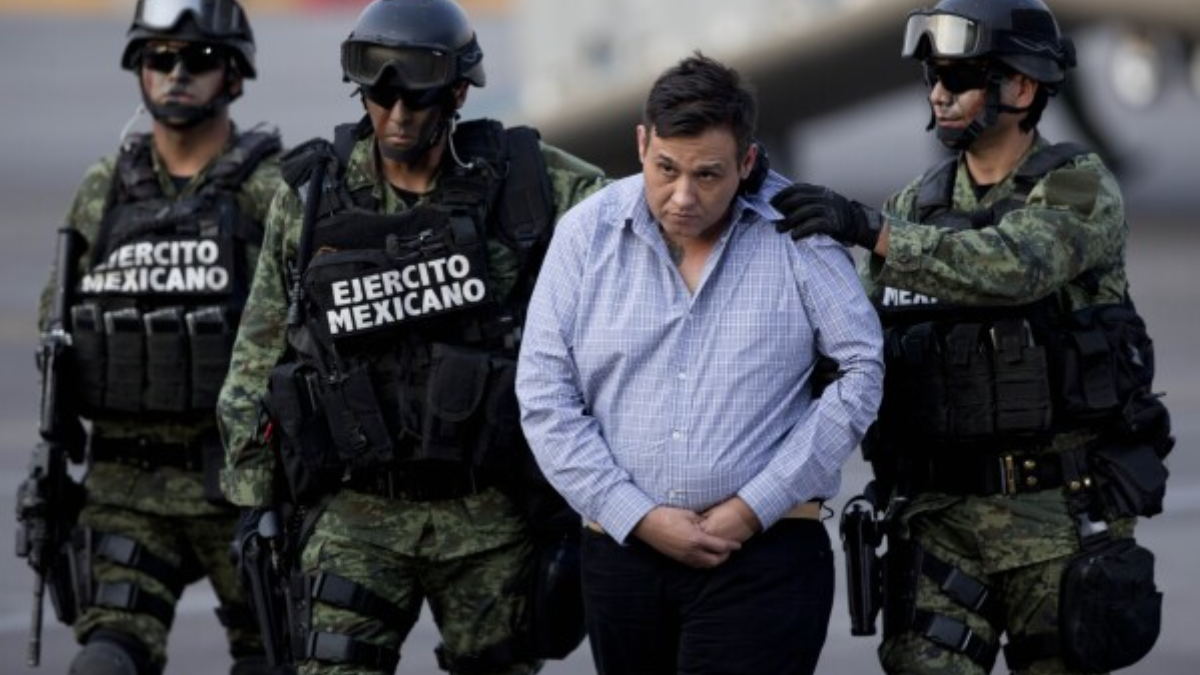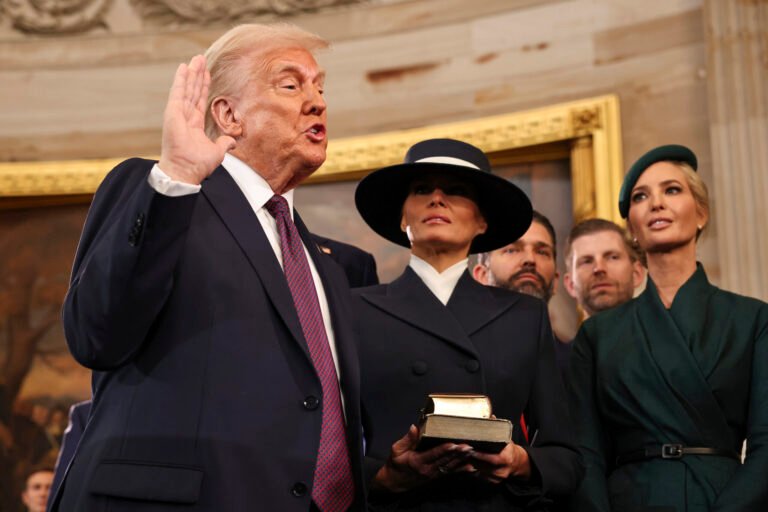
28 Feb, Washington, D.C. — Mexico has extradited the most wanted drug lord Rafael Caro Quintero, along with 28 other cartel figures, to the United States to face charges, the U.S. Department of Justice confirmed on Thursday evening. The transfer marks a significant step in U.S.-Mexico cooperation on tackling drug cartels and organized crime.
Caro Quintero, the former leader of the Guadalajara Cartel, is infamously known for orchestrating the 1985 kidnapping and brutal murder of U.S. Drug Enforcement Administration (DEA) agent Enrique “Kiki” Camarena. His transfer to U.S. authorities fulfills a long-standing demand from American law enforcement and the Camarena family, who have sought justice for decades.
High-Profile Extraditions Targeting Cartel Leadership
The 29 individuals extradited include leaders and high-ranking members of some of Mexico’s most violent drug cartels. According to the Department of Justice, several of these individuals have been designated as leaders of Foreign Terrorist Organizations and Specially Designated Global Terrorists. They face a range of charges, including racketeering, drug trafficking, murder, illegal firearms use, and money laundering.
Among the extradited individuals are Miguel Treviño Morales and Omar Treviño Morales, known as Z-40 and Z-42, respectively. The brothers are former leaders of the Los Zetas cartel, a criminal organization notorious for its extreme violence and involvement in drug trafficking, extortion, and human smuggling.
“These defendants represent some of the most dangerous cartel leaders who have fueled violence and instability across North America,” the Justice Department stated. “Bringing them to justice is a crucial step in dismantling these criminal networks.”
Bilateral Cooperation Amid Diplomatic Negotiations
The timing of the extradition coincides with high-level meetings between Mexican Foreign Minister Juan Ramón de la Fuente and top U.S. economic and military officials in Washington. The discussions have focused on security collaboration, trade relations, and strategies to curb transnational crime.
The move also comes as President Donald Trump has ramped up pressure on Mexico to take decisive action against cartels and drug trafficking. The administration recently threatened to impose a 25% tariff on all Mexican imports unless stronger measures were taken to curb fentanyl production and illegal border crossings.
“As President Trump has made clear, cartels are terrorist groups, and this Department of Justice is devoted to destroying transnational criminal organizations,” said Attorney General Pamela Bondi.
DEA Acting Administrator Derek S. Maltz emphasized the personal significance of Caro Quintero’s extradition for U.S. law enforcement. “Caro Quintero is a cartel kingpin who unleashed violence, destruction, and death across the United States and Mexico. His role in the kidnapping and murder of Agent Camarena is something the DEA has never forgotten,” Maltz said.
Earlier this year, a nonprofit representing the Camarena family sent a letter to the White House urging the Trump administration to renew its efforts for Quintero’s extradition. “His return to the U.S. would give the family much-needed closure and serve the best interests of justice,” the letter stated.
According to former federal narcotics prosecutor Bonnie Klapper, the manner of Caro Quintero’s extradition suggests that the U.S. will have broad legal authority to prosecute him. “If he’s being sent to the U.S. outside of a formal extradition, and if Mexico didn’t place any restrictions, then he can be prosecuted for whatever the U.S. wants,” Klapper noted.
The transfer of the Treviño Morales brothers similarly concludes a long legal battle. Miguel Treviño Morales was captured in 2013, followed by his brother Omar in 2015, yet the extradition process faced years of delays. Former Mexican Attorney General Alejandro Gertz Manero had previously criticized these delays as “truly shameful.”
American authorities have long accused the Treviño Morales family of continuing to run the Los Zetas cartel from prison. They now face charges in the U.S. related to organized crime, drug trafficking, firearms offenses, and money laundering.
Prisoner Transfers Across Multiple U.S. Cities
The 29 prisoners were held in various Mexican prisons before their transfer to the U.S. on Thursday. They are now being distributed across multiple cities, including Chicago, Houston, McKinney (Texas), New York City, Phoenix, San Antonio, Washington, D.C., and White Plains (New York), according to officials.
The Mexican government released mugshots of the extradited individuals, though parts of their faces were obscured by black bars. The move is being viewed as a strategic response to the Trump administration’s demands for stronger action against cartels.
With this latest development, the U.S. now holds some of the most influential figures in Mexico’s drug trade in its custody, setting the stage for high-profile prosecutions that could further dismantle cartel operations.
Get more News Headlines On Our Social Platforms And Do Follow.




